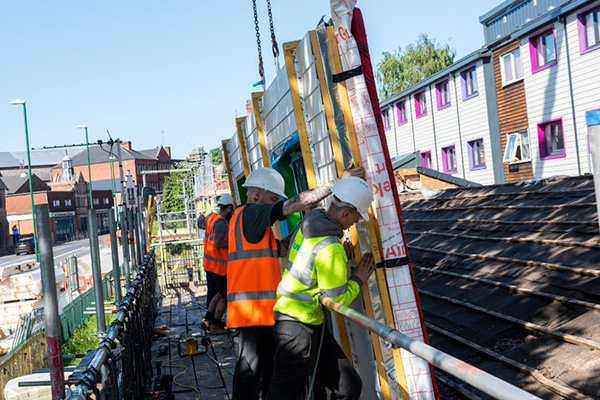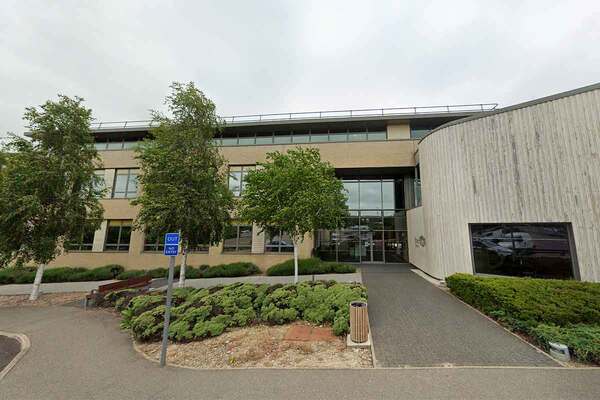You are viewing 1 of your 1 free articles

No other investment can match the range of benefits of making our homes greener
Good policies are often described as win-win. But investing in greener homes is more than that, says David Orr
Back in July, chancellor Rishi Sunak announced the Green Homes Grant as part of his COVID-19 recovery plans.
The scheme, which gives landlords and homeowners vouchers to make energy-efficiency upgrades to their homes, was originally supposed only to fund work completed by March. However, it has now been extended until the end of next December as part of the prime minister’s 10-point plan for a Green Industrial Revolution.
This is welcome news for improving the conditions of our homes. Making our homes more energy-efficient could be a win-win situation, so it’s vital that the government gets it right.
We often hear of an idea or policy being described as win-win. But making our homes more energy-efficient has the potential to go much further than that. We get multiple ‘wins’.
Here’s what I mean:
Win one – healthier lives and less unnecessary death
We want our homes to be safe, secure, comfortable places. And yet, many people are killed by their homes. You’ve heard of the spike in winter deaths? A significant contributor are homes that are too cold and too expensive to heat properly. This leads to various respiratory diseases, makes COVID-19 more dangerous and, especially for older people, causes death.
We’ve known this for a long time but done shamefully little about it. However, now we also have a similar problem in summer. Climate change already means that around 2,000 people in the UK die every year because their homes overheat and can’t be cooled cost-effectively.
The cross-party Environmental Audit Committee said in 2018 that “the number of heat-related deaths is expected to more than triple by the 2050s”. Energy-efficient retrofits will ensure we lead healthier lives and will cut unnecessary deaths. That seems like a pretty big win to me.
Win two – more money for households
If our homes are more energy-efficient, it will cost us all less to stay warm in winter and cool in summer. That leaves us with more money to spend on other things. Another big win for individual households, especially those for whom money is particularly tight.
Wins three and four – new jobs and economic growth
As a result of the coronavirus pandemic, we are in the throes of an historic economic downturn.
The government estimates that this Green Revolution will create 250,000 jobs. Indeed, large-scale investment in energy-efficient retrofits of our homes could create tens of thousands of new jobs, apprenticeships for young people struggling to find work and older people keen to retrain, a new industry providing goods and services, and a huge opportunity for innovation, new technologies and new answers to existing problems.
“Don’t believe those who tell you it can’t be done. It can. We have the technologies, many of which are cheap and getting cheaper”
New jobs put money in our pockets, give people new skills and the confidence and sense of self-worth that goes with having a worthwhile, rewarding job. That’s win three.
The increased economic activity and bigger tax take is good for both local and national economic growth, as well as development at a potentially significant scale worth many billions of pounds. That’s win four.
Win five – cutting carbon emissions
The Committee on Climate Change estimates that around 25% of all carbon emissions comes from heating our homes. We could, in theory, reduce that to zero. Indeed, there are technologies that can ensure our homes are net energy contributors.
We may not be able to reach that for all our existing homes but we can move a large way towards it, thus hugely reducing carbon emissions and helping us as a nation deliver on our international obligations to reach net zero. That’s a huge win.
Win six – avoiding catastrophic climate change
If we deliver the first five wins, all of which are achievable, we help to protect the whole planet from future catastrophic climate change. For the planet, that’s the biggest win of all.
Don’t believe those who tell you it can’t be done. It can. We have the technologies, many of which are cheap and getting cheaper. It doesn’t all have to be government-funded, as the cost of the retrofit can – at least in part – be reclaimed over time in reduced energy consumption bills.
“Energy-efficient retrofitting has the potential to stop unnecessary deaths, help our household finances, give people great new jobs, boost economic output, reduce carbon emissions and save our planet”
Energy-efficient retrofitting has the potential to stop unnecessary deaths, help our household finances, give people great new jobs, boost economic output, reduce carbon emissions and save our planet. It is achievable and cost-effective. No other investment can deliver this range of benefits to each of us individually and to the whole planet collectively.
The government’s Green Home Grant has great potential, but it must be delivered successfully. This means that the process must be simple for those wishing to apply for a grant and enough tradespeople signed up to fulfil the work in the desired timeframe. And it has to last long enough to make a difference.
Greening our homes has to be a long-term strategy, not just a short-term initiative. That really would be part of a Green Revolution.
David Orr, chair, The Good Home Inquiry; former associate director for homes, Centre for Ageing Better; former chief executive National Housing Federation
Sign up for our asset management newsletter
Already have an account? Click here to manage your newsletters












